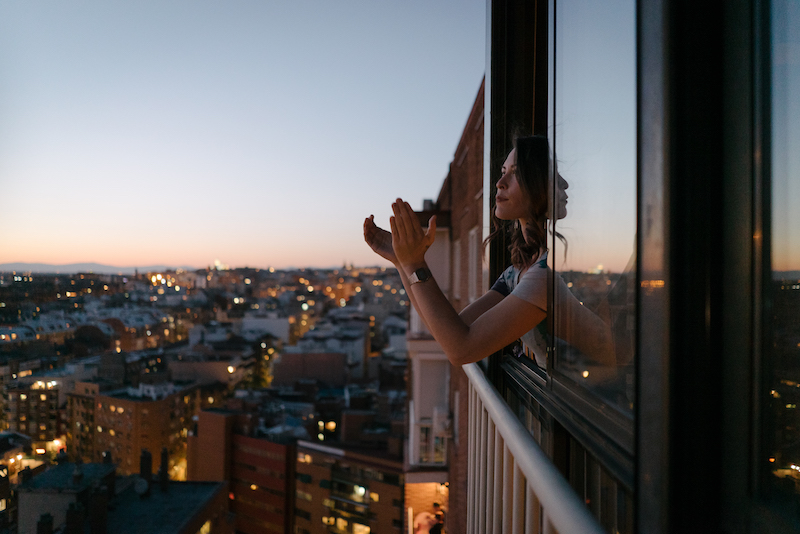Lockdown diaries: Dr. Victor de Benito Vellisca, bravely attending to COVID patients at a hospital in Leganés, Madrid
There will be many opportunities to serve your communities in the aftermath of this crisis, but for now, stay at home.
A shortage of medical aprons has forced some of Madrid’s doctors to wear garbage bags while attending to patients, says Dr. Victor de Benito Vellisca, a medical professional with 40+ years of experience, currently working directly with COVID-19 patients at a hospital in Leganés. He can’t even go near his family without a mask on. And he urges us all to stay home.
While Victor was a surgeon for most of his career, he is now working in a primary care unit, which has granted him insight into how the Spanish healthcare system functions as a whole. He says the medical community is working round-the-clock to bring this crisis to an end. They hear our daily applause at 8 PM as they bravely serve their communities.
* Victor’s son, who shares his name, arranged this interview, translating and transcribing his father’s answers.
How has your life changed since the lockdown began?
My life has changed drastically. I can’t come closer than one meter to my wife, and when we’re near, I have to wear a mask. I can’t meet my children at home to avoid infecting each other. My life now consists of working in the morning and spending the afternoon at home.
What goals are you hoping to achieve as our time in lockdown continues?
My daily goals are to stay healthy to avoid infecting my wife. It is crucial for me to continue assisting my patients who are depending on me for their treatments. The medical community is working hard to find a solution to this problem and I am going in every day and doing my part.
How has the lockdown impacted your industry?
We are overwhelmed with work. We are all under pressure and I have the feeling that I am not achieving as much as I would hope to. The strain on staff and the lack of supplies are apparent.
Have you noticed any acts of kindness or uplifting things recently?
Yes, I have noticed that the population is grateful to healthcare professionals. When we go on call to their homes or they come to see us, they don’t stop thanking us for our work. The cheering at 8 PM every day is heard and appreciated by me and my colleagues.

What’s the first thing you’ll do once this lockdown is over?
The first thing I’ll do will be to kiss and hug my wife. It pains us that we cannot be close while this crisis is happening. I’ll also meet my daughter and hug and kiss her. I will greet my friends and people I know in the street by shaking their hands and I will congratulate my colleagues for the accomplishments of their work.
Do you have any tips for how we can help those in need?
There will be many opportunities to serve your communities in the aftermath of this crisis, but for now, stay at home.
Who are you in quarantine with? Any advice for people in a similar situation?
I am in quarantine with my wife. I would recommend that people in quarantine with their spouses find ways to keep themselves entertained to release stress, such as reading, watching TV, communicating with friends and chatting over the phone.
If you could tell the government one thing right now, what would it be?
The top priority right now is to control the spread of the virus. I would ask the government to be less lenient towards people who are breaking the lockdown rules in order to avoid an increasing death toll.
Do you have a message for your community?
My message to my neighbors would be to remain patient, stay strong and control the spreading of the virus. We hear you on your balconies at 8 PM, applauding us as we work for a solution to this problem.
My main tip is that people refrain from leaving their house except for when buying food and going to the pharmacy. Being confined at home is the best way to isolate the virus and avoid it continuing to spread. Let’s hope that soon this nightmare will end once and for all.
Check out all Madrid lockdown stories
If you’d like to get involved and share a compelling story from this ongoing chapter of history, reach out to Daphne Binioris (daphne@veracontent.com ) and Daniel Catalan (a96039@aup.edu)